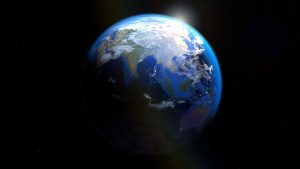The COVID-19 crisis poses an unprecedented threat to development in the Asia-Pacific region, one that could reverse much of the hard-earned progress of recent years. The good news is we know how to tackle this challenge. Recovery from the pandemic and our global efforts to deliver the United Nations Sustainable Development Goals (SDGs) by 2030 must go hand-in-hand. The Goals provide a compass to navigate this crisis, faster and greener, everywhere and for everyone.
Results from the 2021 edition of the “Asia and the Pacific SDG Progress Report” published this week by the United Nations Economic and Social Commission for Asia and the Pacific (ESCAP) show that the region fell short of its 2020 SDG milestones, even before the global pandemic. The region must accelerate progress everywhere and urgently reverse its regressing trends on many of the Goals and targets to achieve the ambitions of the 2030 Agenda for Sustainable Development.
In the last decade, Asia and the Pacific has made extraordinary progress in good health and well-being (Goal 3), which may partly explain its relative success in reducing the health impact of the COVID-19 pandemic on its population. Yet despite these hard-won gains, the region faces many challenges, such as providing an adequate healthcare workforce, reducing premature deaths, and improving mental health.
As we find our way out of this pandemic, we must focus efforts on more equitable and greener growth. The environment and the most vulnerable population groups should not pay the price for our economic ambitions and rapid industrialization (Goal 9, another area of faster progress for the region).
The most alarming observation in the new ESCAP report is regressing climate action trends (Goal 13) and life below water (Goal 14). The Asia-Pacific region is responsible for more than half of the global greenhouse gas emissions. Adverse impacts of natural disasters on people and economies increase year-by-year. The quality of the oceans continues to deteriorate due to unsustainable human activities, and economic gains from sustainable fisheries are decreasing.
The COVID-19 pandemic offered another urgent signal that our unsustainable consumption and production is putting unbearable pressure on ecosystems. Unless there is a transformative push toward a sustainable future, pandemics will emerge more often, with more damage to our societies and economies. Wildlife and ecosystem conservation are vital to prevent future pandemics and the transfer of diseases from animals to humans.
Robust evaluation of progress on the SDGs is disrupted by lack of data. Data availability on the indicators has increased in the region in recent years as more countries prioritize the SDGs. However, challenges remain, and we need to do more to fill data gaps on nearly half of the official indicators without sufficient data to tell us the true story of progress.
It is too soon to see the real impact of the COVID-19 pandemic on progress toward the SDGs. However, early studies from U.N. agencies in the Asia-Pacific region show no single Goal is safe from the pandemic’s negative impact. The “leave no one behind” objective of the SDGs is at particular risk. Early data show that mothers and children, students, informal workers, the poor, elderly, refugees, and asylum seekers are extremely vulnerable. Simultaneously, despite a short-term dip in air pollution during strict lockdowns, the pandemic’s negative environmental impacts are already clear. Additionally, there are concerns that the economic recession caused by COVID-19 might lead to a decline in investment in protecting natural environments.
Recovery measures are an excellent opportunity for us to rethink our options for development pathways that are inclusive, more resilient, and respect planetary boundaries. As we enter the Decade of Action to deliver the 2030 Agenda, we need to reinforce our collective commitment to the SDGs and let it provide our compass for building back together, better and greener.
































